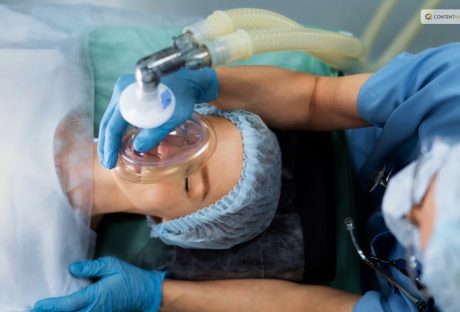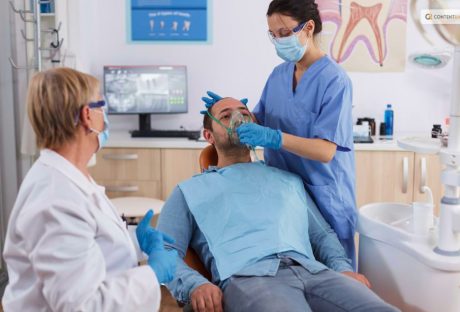I do not think that anyone has said that they did not want to be a detective growing up. Well, after reading stories on Sherlock, that was something that I always wanted to become! But I didn’t like the idea of being a police officer.
Then, how to become a detective without being a police officer?
If this is something that you also have been thinking about, then I am here to help yo out! So, keep on reading this blog till the end to learn more and thank me later…
Understanding the Role of a Detective

If there is one thing that I would like to compare a detective to, it’s surely going to be a puzzle.
They search for missing pieces in order to decipher puzzles and discover the truth. Imagine being unable to locate your beloved toy after losing it.
Considered to be one of the most dangerous jobs, a detective would begin by searching for hints, such as the location of your last recent playtime or any witnesses. They act in the same way but in more serious situations, such as when someone violates the law or a business suspects someone of stealing from them.
Since detectives must be keen observers, they pick up on details that others might overlook. In order to gather information, they converse with people and pose inquiries. They also examine records from computers, videos, and papers.
Occasionally, they observe locations or individuals covertly to see what transpires when the subject is unaware that they are being observed.
The piece up a narrative of what they believe happened using all the hints they discover. It’s similar to trying to recall your gaming route in order to locate where you might have let go of your toy.
The narrative that detectives compile into a report is sent to other decision-makers, such as judges or attorneys, so they can decide what to do next.
Police departments do not employ all investigators. Some work as private investigators, which means that individuals or organizations employ them to investigate particular issues.
Even though they don’t have a police badge, they are nevertheless subject to the law and are not allowed to act in a police capacity.
To put it briefly, detectives are astute thinkers who apply their senses— eyes, ears, and brains— to solve complex puzzles. They ensure that the truth is revealed and assist in keeping people secure.
Road to Private Investigation: How to Become a Detective Without Being a Police Officer?
Now that you know who a detective is and what they are supposed to do, you might be interested in learning about how you can become one without being a police officer!
Do not worry. I can be the perfect Watson for you! Here are some of the things that you need to do:
1. Educational Foundation

To be a detective without a police badge, you don’t need to go to police school, but learning is still important. It is definitely not one of those low-stress jobs that pay well without a degree!
Think of it like training for a sport. You need to know the rules and how to play the game. Studying subjects like criminal justice or law is like that. It teaches you about the rules of being a detective.
You learn about laws, how to find clues and understand why people do things. This knowledge is your tool kit, helping you solve mysteries smartly and legally.
2. Gaining Experience

Think of becoming a detective, like learning to ride a bike. Before you can ride smoothly, you need to practice. For detectives, this practice is called experience. You can start by working jobs that are a bit like being a detective.
For example, you could help a security team, work with lawyers, or even write reports for a newspaper. These jobs teach you how to look for information, ask good questions, and pay attention to details.
It’s like playing a game where you have to find hidden objects. The more you play, the better you get at finding them. That’s how experience helps you become a good detective. You learn by doing things that detectives do, even if it’s not the same job.
3. Developing Skills

Taking up detective work is akin to being a superhero. Solving cases requires specialized knowledge. You must first have keen eyes to notice small hints that others might overlook.
It’s similar to realizing a tiny puzzle piece that makes the larger picture easier to see. Then, mental capacity is required. This implies that you can decipher the hints by looking at them, much like you would when completing a puzzle.
You’ll be asking individuals questions and needing to comprehend their responses, so you also need to be adept at communicating and listening.
Finally, you need to get along with technology. Modern investigators obtain information quickly by using devices and computers. It’s like having a magic wand that allows you to locate objects that are invisible to human sight.
4. Certification and Licensing

A license is a specific card that is required in order to work as a detective without being a police officer. A detective’s license is similar to a driver’s license.
You will need to demonstrate your investigative skills in order to obtain this. You may have to pass an exam or provide proof of your prior experience working as a detective.
In some places, you also need to write a big essay about detective work or talk to experts who ask you tough questions. If you pass, you get your license which tells everyone you’re a real detective.
It’s important because it’s against the law to be a detective without one in many places. So, getting licensed is like passing your final exams in school. It proves you’re ready to start solving mysteries on your own.
5. Building a Network

Imagine you’re playing a team sport. You can’t win alone; you need teammates. For detectives, these teammates are other people they know in their job, like a network.
It’s a group of friends and helpers who can give advice, share secrets of the trade, or even offer jobs. To build this team, you go to meetings, join clubs for detectives, and talk to experienced ones.
It’s like making friends at school. The more friends you have, the more you learn and the better you get at your game.
This network is super important because it can help you become a great detective. It’s like having a secret club where everyone helps each other to solve mysteries.
6. Starting Your Career

Let’s say you’ve studied and practiced a new game extensively. You’re now prepared to play for real money. It would be like embarking on a career as a detective. Now that you’ve studied and practiced, it’s time to work.
You can be bold and launch your own detective agency or work as a detective in an agency with other investigators. It’s similar to choosing between starting your own sports team and joining an existing one.
It may be slow in the beginning, and not many people will be aware that you are a detective. But persevere and never give up. As you continue to solve crimes, more people will eventually seek your assistance.
And do not worry about the money. If police officers make money, detectives do too!
It’s similar to when you consistently win games and get asked to join teams. Your detective career will advance if you are persistent and diligent. It ultimately comes down to applying what you’ve learned to solve actual riddles.
Being a Detective in the Age of Technology

Being a detective in the modern world is similar to wielding a magic wand as a wizard. However, instead of a wand, detectives use technology.
Technology has changed the way detectives work, making it quicker and easier to gather evidence and solve puzzles.
Detectives used to perform all tasks by hand, such as going through numerous documents to locate a single crucial letter.
These days, computers allow users to quickly search through thousands of records, which is comparable to having superhuman reading speed.
Additionally, detectives use covert cameras and microphones in practically any location. This allows them to hear and see without actually being there— it’s like having numerous sets of eyes and ears simultaneously.
And there’s the internet, which functions like a never-ending giant library. From their computer, detectives can obtain information about nearly anything or anybody.
They can also view maps that display where individuals are going, which is similar to following other players in a computer game.
However, enormous power also entails considerable responsibility. Detectives must exercise caution when utilizing technology and adhere to the law. They require a valid reason and perhaps court approval before they can snoop on anyone.
Additionally, technology keeps detectives safe. They have access to devices that alert them to the presence of people or potentially dangerous objects within a structure. It’s similar to having a shield around them to keep them safe.
Ethics and Legality: Treading the Gray Path!

There are rules you have to play by when you play a game. Investigators are in the same boat. They must adhere to the law. This implies that they are not allowed to enter someone’s home or take anything without authorization.
It’s similar to a board game in that you can’t just advance to the finish line in the hopes of winning. Ethics are comparable to sports’ fair play regulations.
Detectives have to maintain secrecy and be truthful. They cannot deceive others or obtain knowledge by lying. It’s about treating everyone with respect and being a good sport.
Protecting people’s privacy is another duty of detectives. They are not allowed to snoop on people without a very solid reason, just as you wouldn’t want someone reading your journal.
In certain cases, such as when you ask a teacher for permission to use the library during class, they need to obtain approval from a court.
Thus, conducting investigative work properly is crucial to ethics and legality. It ensures that you treat others fairly and do no harm to them. It’s critical because it preserves the confidence that investigators have in the clients they serve. It’s similar to being the dependable team captain, where everyone depends on you to make the right decisions.
Wrapping It Up!
In case you were searching for the answer to how to become a detective without being a police officer, I hope that you have found this blog helpful! If there are any other questions that you might have related to the same, please feel free to let me know.
All that you need to do is scroll down until you reach the bottom of the page. Then, leave your questions and suggestions in the box below. And I will be there to answer them all for you!
Additional Reading:






















